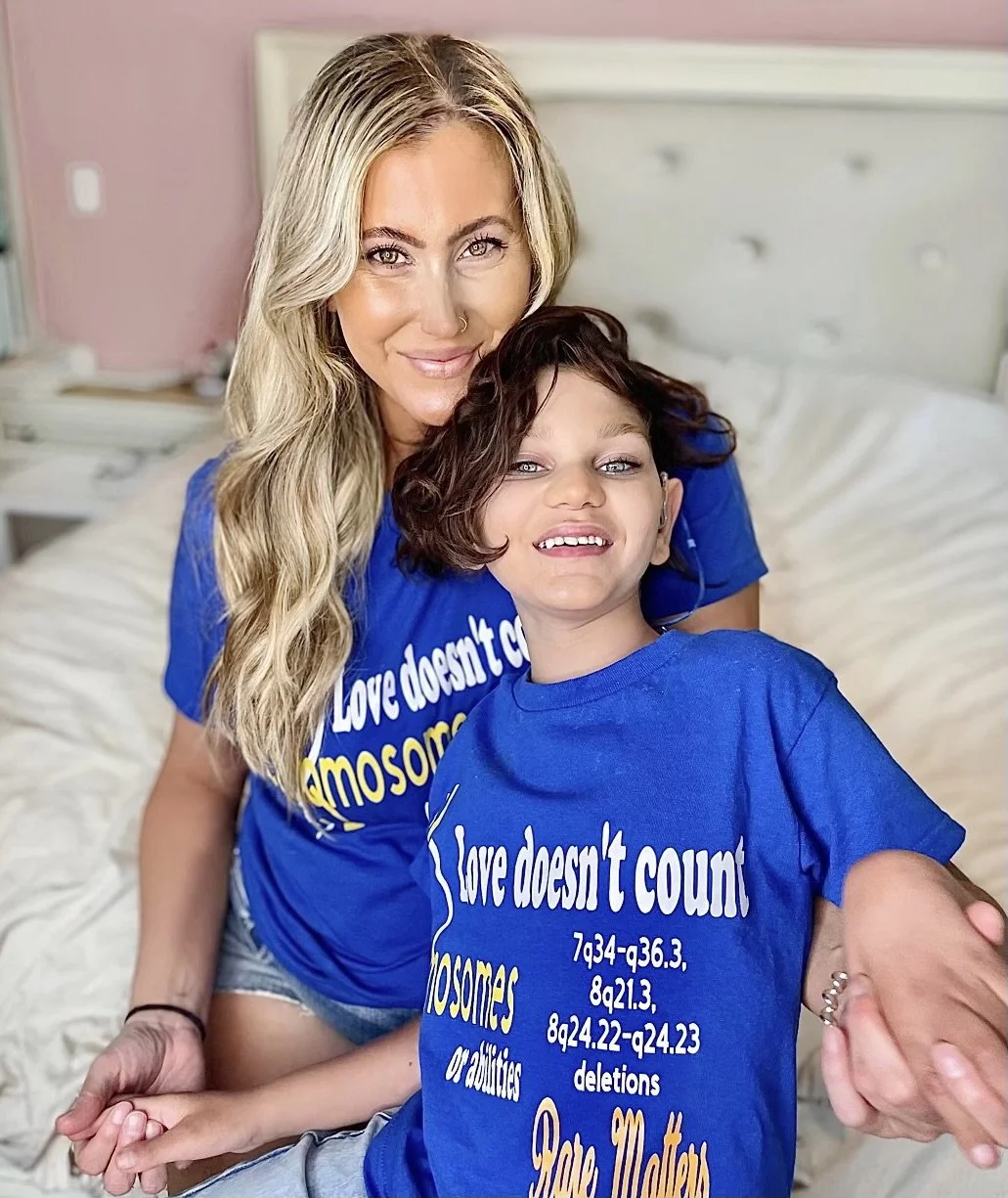Azariah’s LQTS Story
In the early stages of Angela’s pregnancy, doctors were concerned about the well-being of her baby and even suggested the possibility that he may not survive childbirth.
Baby Azariah, whose name means ‘God is my help’, was born prematurely and spent 33 days in NICU (Neonatal Intensive Care Unit). He was initially rushed to NICU due to an abnormal heart rate. Fortunately, the hospital had the state’s best paediatric electrophysiologist and diagnosed Azariah with a severely prolonged QT interval. He immediately started beta blockers, one therapy for Long QT Syndrome. Angela attributes this vital early intervention at only two days old to saving Azariah’s life.
Azariah would continue to need significant medical interventions for several other health conditions that he was born with due to extremely rare chromosome abnormalities. He is missing large portions of his 7th and 8th chromosomes, an abnormality so rare that there are only five others in the world known to have the same 7th chromosome deletion.
Long QT Syndrome was a completely new condition to Angela and her husband. Most people with congenital Long QT Syndrome have a family history, but that is not the case for Azariah. He is what is known as: de novo (new) mutation.
“We were told there was a long list of medications that could be dangerous for him, even very common ones. We also had to take special precautions, as even things like sudden loud noises could trigger dangerous arrhythmias in him.”
Angela admits that for the first year of Azariah’s life she stayed awake almost 24/7, as she wanted to be able to intervene if he went into sudden cardiac arrest.
Angela hopes that one day there will be alternative treatments or a cure as opposed to relying on beta blockers. Currently, Azariah undergoes month-long heart monitoring to track changes in his health and seizure activity.
Angela describes Azariah as the most loving, joyous boy who has a drive for life.
“We have learned to not fear Azariah’s long QT; to not allow it to consume us or steal our joy. We respect it, live with it, and implement precautions that allow Azariah to experience life to the fullest.”
Angela wanted to share their story to emphasise that the path to a happy life doesn’t involve merely pursuing pleasure and avoiding all pain.
“Azariah is the one that taught me that happiness is not found in the avoidance of pain and trials, rather it is found acknowledging that pain, holding on to hope and seeking our values, goals and faith. The more I try to avoid and suppress the trauma that often comes with LQTS and caring for a child with disabilities the less peace I have.”
To learn more about Long QT Syndrome, visit The SADS Foundation’s organization’s website at: www.sads.org.
Author: David Hutton.



